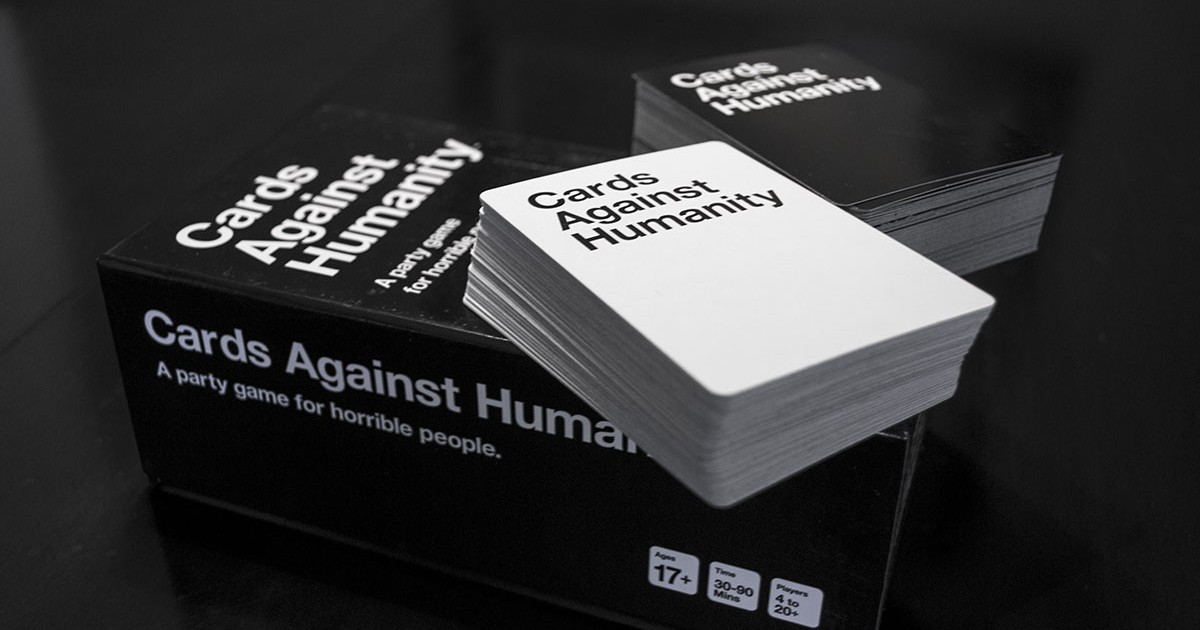Cards Against Humanity: The game of a generation
“What gives me uncontrollable gas?”
“Auschwitz.”
The statement precedes a brief period of silence followed by ebullient laughter. There are few games more highly treasured to the college student than Cards Against Humanity, the card game in which players fill in a sentence given by a card with one of their own. The twist is that the cards are noticeably R-rated (like “coat-hanger abortions” and “dead parents”) — thus allowing horrifying and hilarious results. But perhaps we find these jokes so wildly funny because, in an era more politically correct than ever before, we increasingly internalize injustice.
Granted, there are several identifiable lines of hypothesis to the humor of offensive jokes. For one, there is the shock factor associated with the effrontery to fly in the face of the political correctness that requires us to tiptoe around sensitive issues. We could use offensive jokes as an outlet to talk about important issues without the burden of necessitated grief that comes with such a conversation.
But I don’t think that anyone plays Cards Against Humanity because they want to talk about serious issues.
There’s an undeniable sense of relief when laughing at an offensive joke. Offensive jokes could be a coping mechanism for daily tragedies — a refreshingly new reaction to heartbreaking calamities that we realistically can do nothing to change. Or it could be our way of stuffing the lid on the can of the Holocaust or dead babies so we don’t have to think about the agony of those events. Offensive humor, then, could be indicative of a greater psychological inability to properly deal with the injustices that we are exposed to in daily life.
The question to ask is if our laughter associated with an offensive joke is inherently a negative attribute. Some could view offensive humor as rooted in the German concept of “schadenfreude,” or pleasure created by others’ misfortune. Schadenfreude elicits the same kind of visceral reaction as one would from watching others fall down flat on their faces. As philosopher Arthur Schopenhauer called one of the most evil sins of mankind, schadenfreude is thought to occur out of comfort that it is not us but rather others that incur hardship,
Yet again, I strike down the theory that offensive humor stems from schadenfreude. We don’t laugh at date rape or alcoholism because of a “them-not-us” mentality. It is, rather, a silent acknowledgement of the hardships that the past and present has brought to civilization and a steadfast decision to move forward despite them.
Sonali Seth is a freshman majoring in political science. Her column, “Sonacrates,” runs Tuesdays.

